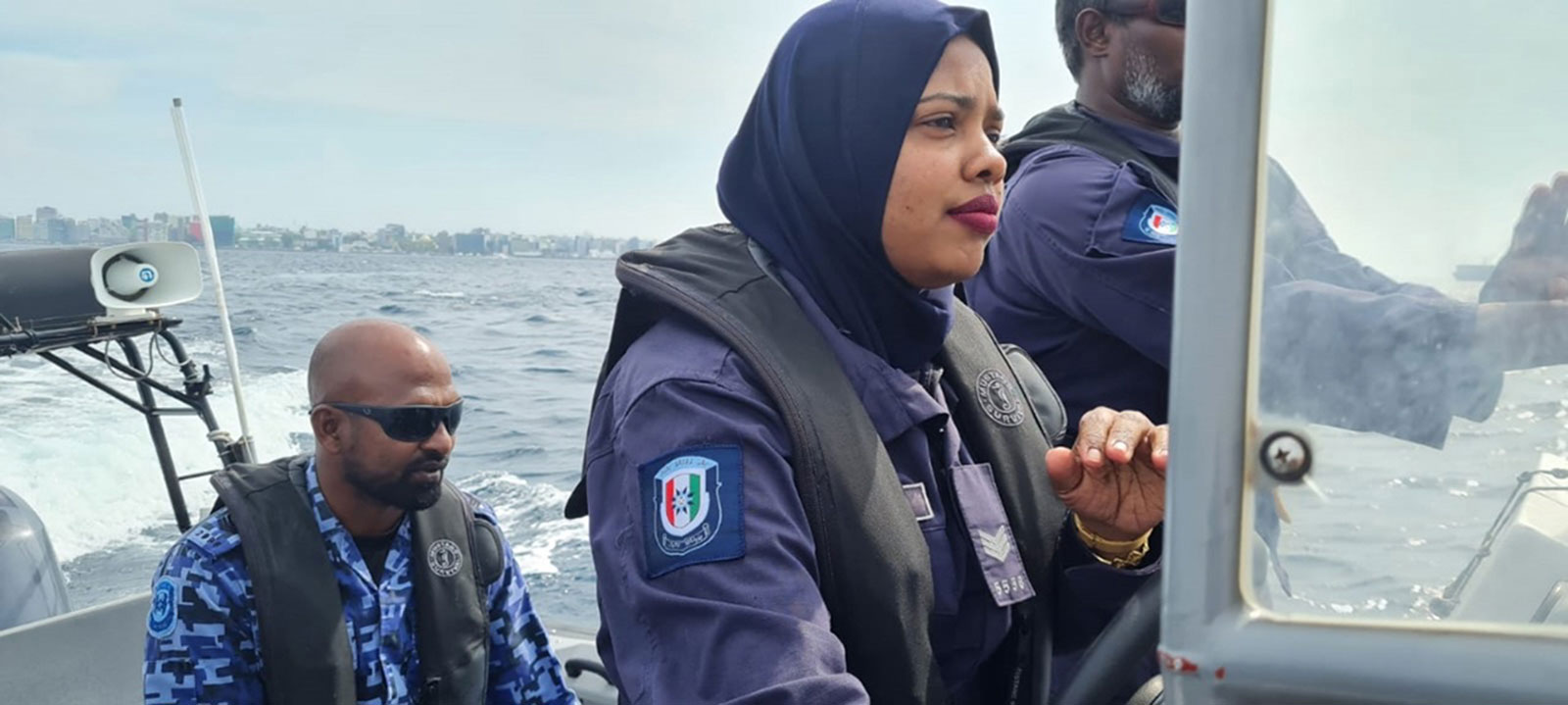
After three years of dedicated efforts to enhance the careers and personal growth of women in the fisheries sector, the Blue Enforcement project has turned Sri Lanka and the Maldives into exemplary models of best practices.
In 2023, the UNODC Blue Enforcement project received the UNOV/UNODC Gender Award for its comprehensive training programmes, strategic sea operations, and fostering of cross-agency coordination and regional cooperation through a gender-inclusive lens. In the words of the jury, “the project made significant strides towards gender equality and the empowerment of women in these professions.”
Women-Only
“It is incredibly rewarding to see women who were initially uncomfortable speaking in groups, who had not taken the floor, and who were cautious, encouraged to participate and then achieve new results,” says Anne Linn Jensen. As Programme Officer in the Border Management Branch at UNODC, she was responsible for implementing parts of the Blue Enforcement project.
The project promoted women’s empowerment through regular contact and initiatives like a side event at the Blue Justice Conference in Copenhagen in 2023. It provided specialised training for women law enforcers and fisheries officers, including leadership training, building connections, establishing mentorship schemes, and creating global and regional networks to support their career progression.
“When you have workshops for women-only, you can have a targeted curriculum that addresses specific challenges they identify and want to work on. It also creates a completely different room for discussion. The atmosphere is different, and women talk more openly about challenges and opportunities than they might with men present.”

Bravery Needed
“Professions in fisheries, customs, police, navy, and coast guard are generally male-dominated worldwide. Cultural stereotypes about professions can influence the recruitment process even before it starts,” says Jensen.
Enforcement officers face numerous hazards while tackling organised crime in the fisheries sector. They might encounter hostile crew members who resist or become aggressive, potentially leading to violence. Working conditions on ships can be unsafe, with slippery decks, poorly maintained equipment, and cramped spaces, increasing the risk of accidents.
Operational risks involve dealing with complex and unfamiliar ship layouts and possibly being outnumbered or without immediate support. Circumstances are stressful, and one needs to stay on the alert.
“There is often an over-focus on physical strength. Yes, the work can be physically demanding, but many women are in better shape than men, so that argument doesn’t hold,” Jensen points out.
Fewer Prospects
“Once hired, women often find that their career prospects are not the same as the men’s, and access to promotions is unequal. It’s demotivating for women to be in positions where it takes a long time to move up or jobs with little chance of success.”
“These are real challenges. We hear again and again that family commitments can be difficult to reconcile with these types of jobs. Sexual harassment can also be a problem, though many women don’t talk much about this.”
Funding With a Horizon
To develop the project design, a thorough analysis of the challenges in Sri Lanka and the Maldives was conducted. “Since we had people on the ground, we knew the context quite well. Through that process, we were able to identify a specific outcome with specific outputs and activities. We focused on equality, and funding was allocated to train female officers. We also included an element of repetition to prevent the project from becoming a once-off,” says Jensen.
In order to run successful projects, good donorship is of the essence. Jensen points out that the level of funding matched the activities outlined and made it possible to plan ahead and share those plans with the project participants.
“Secured, long-term commitment eases structured planning,” she says. “While the project is phased out, Sri Lanka and the Maldives have undoubtedly become best practice countries,” says Jensen. “We see an increased understanding of what crimes in fisheries are and increased interdisciplinary cooperation. We’ve had some seizures and good results. You don’t change the world in three days, but you can get started, and it has been incredibly rewarding.”
Photo: Breaking into male-dominated professions in fisheries law enforcement is challenging, but targeted and well-funded projects yield reuslts. (Photo: UNDOC)
AI has been used to edit this web story.